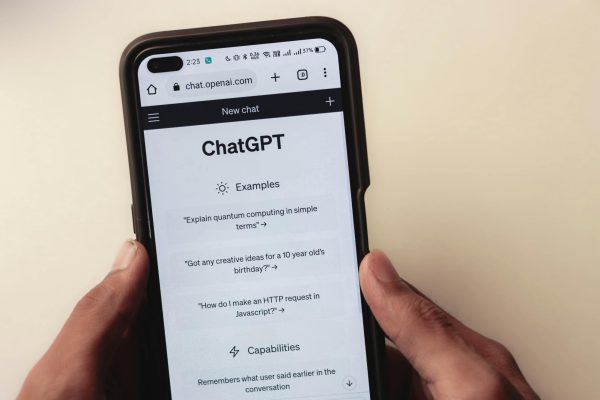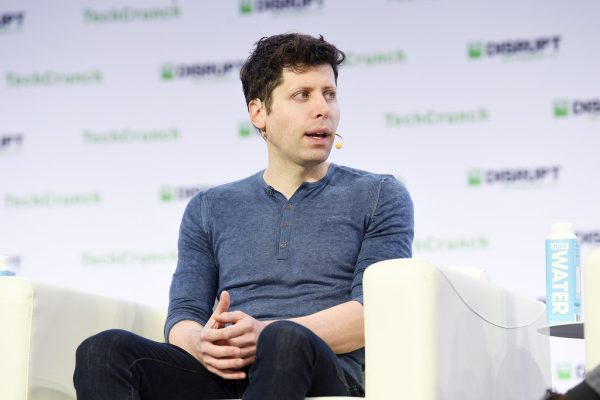My father is a walking encyclopedia. A living and breathing ChatGPT, if you will. I can ask him any question and he will know the answer. He has every historically significant event memorized, with every date to go with it. He knows the exact definition to any big word, and that’s in both English and Farsi. He can fix any problem, from a flat tire to knowing the direction to the most obscure location, all without pulling out his phone from his pocket. (He actually clips his phone onto a belt holster, which I find hilarious, but that’s beside the point).
Whenever I search the internet, my dad never fails to remind me of what finding information was like for him. He would get on his motorbike and head to the library, where flipping through massive books in search of a single answer took no less than an hour.
Contrasted with the present day, when every answer is readily available at our fingertips, some might say that I’m lucky to have grown up with the internet. However, it doesn’t always feel that way.
My father was forced to be resourceful, to obtain skills that people of my generation rarely claim. Why? Because we no longer have to. When we are not forced to put a skill into practice, we lose it. We stopped shooting the bow-and-arrow once guns were invented. We stopped hunting once stores were introduced. Our capacity for basic mental math diminished with the democratization of calculators. Technological advancements continue to shape how we interact with the world, and now, as AI is being integrated into every facet of our lives, our capacity to learn is facing a serious threat.
Before the launch of ChatGPT, the best tool available to aid our academic development was Google. This tool was a library in our back pockets, and no more than that. We still had to read articles and filter through irrelevant information for hours to find our answers. Suddenly, after the launch of ChatGPT, nobody needs to digest any information in search of their answer.

Once my peers and I adjusted to the curiosity and excitement that arose with such a platform, it became the norm for students to copy and paste assignments into the AI system, producing solutions in seconds. The same homework prompts that once stumped us and forced us to grow academically now require minimal effort and mindless, zombie-like activity to complete. Is that a good tradeoff? Convenience for weakness?
Milken student, Jay Pritzker 25’, shared insight on his perspective saying, “I see AI as a piece of capital that can be used to create a product like a hammer. A hammer allows a worker to make something much quicker than he would with his bare hands. So, I think that AI can be used for students the same way a hammer can be used for a worker. You can [use] it to reduce the time it takes to create things while still learning the content.” Jay went on to explain that sometimes we are given complicated texts that need consolidating to understand. By doing this, we lose the skill to later “decode” complicated information independently. Ultimately, every time we come across something that we fail to understand, AI becomes more of a necessity rather than convenience.
Milken History teacher Mr. Painter believes, “[AI] is a new tool that’s going to happen regardless of whether we want it to or not. We are going to have to wrap our heads around how we want to use it effectively and keep it from being abused. And so it’s scary. But you either get out in front of it and grapple with it or you play catch up and freak out.”
If we cannot control the rate at which technology advances, then what can we control? Our own reactions. Rather than continuing down this path of using AI to minimize brain activity and numb our minds, we can actually increase our learning capacity by embracing the advantages these tools offer.
Painter made a first attempt at doing just that. In an effort to harness the potential positive outcomes of using AI in education, he directed his students to prompt ChatGPT to make them an outline of a research paper they would later write themselves. He shares the outcome of their experience: “The good thing was that Chat GPT 3.0 was such a rudimentary or beginner kind of version of the product that it is. It wasn’t great. And all the students who used it appreciated how it helped them organize their thoughts, but it was very vanilla.” He elaborated that when Chat GPT was still in its beginning stages, it held less power and was thus safer for our generation’s use.

We will surely experience many failures and shortcomings as we continue to learn how to best incorporate this highly accessible AI power into our academic systems. Our best bet is to learn from our mistakes along the way with the goal in mind being to find the middle ground between technological competence and authentic academic intellect. For if we are to choose one of these strengths over the other, we either risk falling behind as the world advances, or losing the ability to think for ourselves at all. Upper school History teacher Mr. Gibert puts this concept into perspective, explaining, “When you are [tested with no access to resources], taking your SAT, whatever it is, you can’t fake it. You can have tutors, you can do whatever you want. But when you’re in front of that question, if you don’t know how to tackle it, you’re screwed.”
When we use technology as a substitute for our skills rather than a supplement, we risk coming to a standstill when the time comes to face any challenge where technology is not available. A student at our school who prefers to stay anonymous shares her experience saying, ”It’s a blessing and a curse because I can’t really imagine what I would do without it but that scares me…And I’m probably less reliant on it than half the people in this school.” Even though humans created machines, it’s puzzling how these very machines manage to seize control over us.
These negative outcomes don’t only affect our individual strength, they also hold the power to negatively impact our influence on others. When I envision people who rely solely on ChatGPT to get through school as the world’s next doctors, lawyers, social workers, and teachers, I lose confidence in the world my children will grow up in. An inability to remain autonomous while using technology to supplement our strengths will have a ripple effect on the generations that follow us. My role models have always instilled in me that I wouldn’t want a cheater as my doctor, so it feels only natural to reject this new form of cheating that has developed.
Similar to the industrial revolution, and the dotcom revolution, we are living through one of the most significant developments in history. Let us not take this moment less seriously than it deserves. Let us make conscious decisions to ensure that this development will be used for the betterment of our society.



